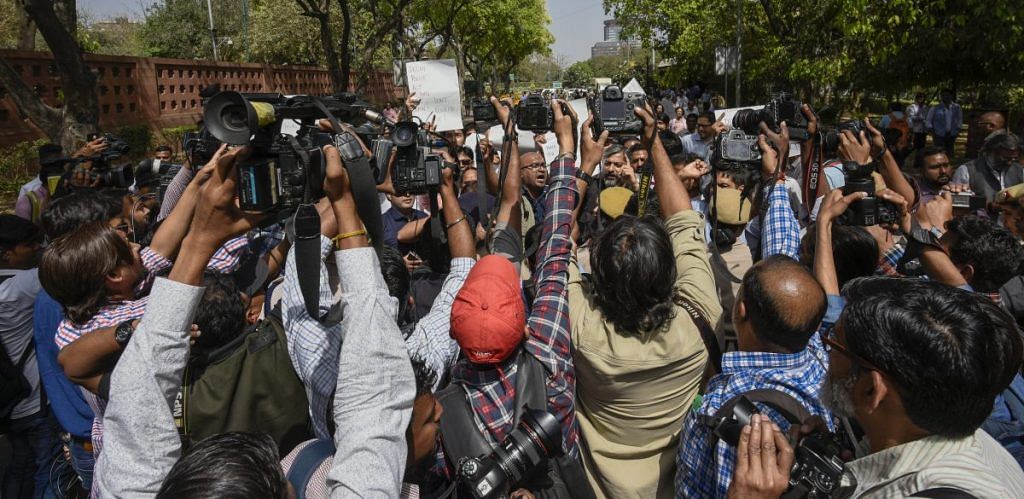Justice B.N. Srikrishna committee wants journalists to follow ethical standards set by media associations and make a public commitment to this effect.
New Delhi: The Justice B.N. Srikrishna committee constituted to prepare a data protection framework to help guard the privacy of Indians wants journalists to follow ethical standards set by media associations and has recommended that it should be mandatory for them to make a public commitment to the effect.
The panel has also said that journalists could be granted exemption from the proposed data protection law if the use of certain personal information is deemed to be in larger public interest and a clear distinction is made between fact and opinion.
The Srikrishna committee was constituted in the wake of the Supreme Court’s landmark ‘right to privacy’ judgment to prepare a data protection framework.
The draft report of the panel, accessed exclusively by ThePrint, has called for a revision of the existing code of ethics laid down by the National Broadcasting Authority, so that it acts as a measure of accountability for journalists and does not cause undue violation of data protection rights of citizens.
It emphasises that journalists should follow certain ethical standards such as honesty and fairness in data collection, especially in the age of internet where, it says, data collection has become easier. It expresses concern over persons without skills or training in journalism are becoming the “source of news”.
The larger interest
In an attempt to strike a balance between freedom of expression and the right to informational privacy, the panel has said that the proposed law should factor in “journalistic purposes” and if the revelation of certain data furthered “public interest”.
An emphasis on public interest runs as an undercurrent throughout the report, which also calls for laying down broad contours of what ‘journalism’ and ‘journalist’ would signify in the context of data protection.
According to the panel, media persons invoking journalistic exemption from the law should be able to reject requests to implement the rights of data principals, such as “access, confirm and correct”, that may block the publication of a report or the collection of information, or lead to their harassment.
The exemption, it has proposed, should also allow journalists to store data for future work as long as they have a clear reason that could be guided by the importance of a given piece of news, the level of intrusion it entails, as well as the potential impact on the data principal and third parties.
However, it has called for a robust ethics code to guide the conduct of journalists, citing as a worry the fact that the internet age was allowing people not trained in the field to emerge as news sources.
It refers to the ethics code submitted to it by the News Broadcasters Association (NBA), a body representing private TV news channels, and said similar standards should be set by various media regulatory organisations and journalists to avail of the exemption proposed.
According to the report, the NBA code emphasises that published facts be accurate, neutral, fair, objective, relevant and impartial, data is kept secure, and information used in a way that doesn’t violate the data principals’ right to privacy.
“Independent journalists may self-certify through a declaration that they are adhering to the aforementioned ethics standards,” it added.
Safeguards against data loss
The panel adds that an activity for a “journalistic purpose” should be linked with an intention to publish or disseminate the content, which again should be in “public interest”.
It, however, adds that the threshold of what counts as “public interest” is “low and vague”, even though the Indian judiciary has laid down factors like likelihood of injustice, sensitivity, relevant information, passage of time, and class of persons affected to draw out the scope of the term.
The draft report also calls for the implementation of security safeguards for personal data processed by journalists. “They must take reasonable steps to prevent the data’s loss, theft or misuse,” the report states, adding that those availing of the exemption should ensure their published work is not misleading and distinguishes facts from opinions.
Earlier this week, ThePrint had reported that if the panel’s draft report is adopted, the data protection law may not apply to Aadhaar with retrospective effect.
